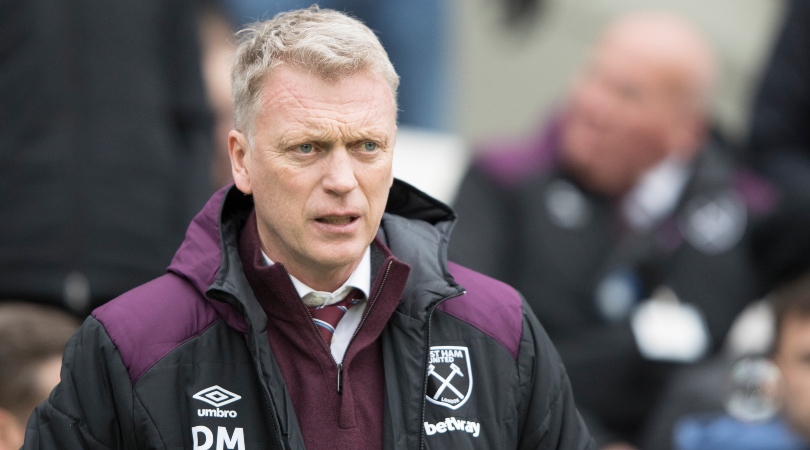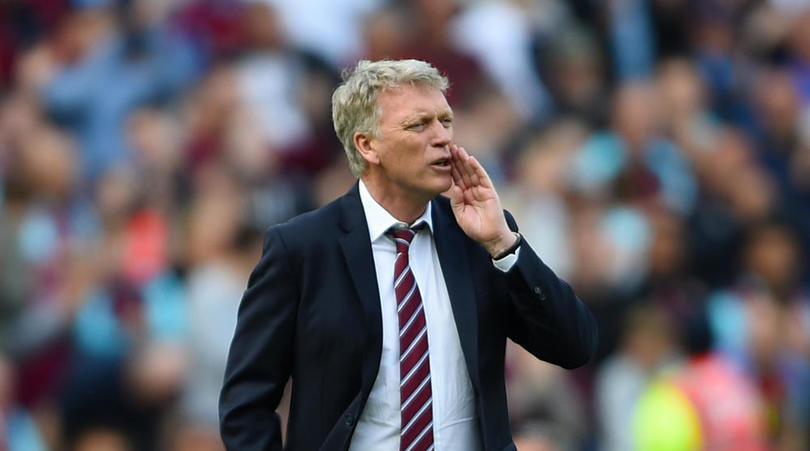Under David Moyes, West Ham will reset their entire strategy. But is that what they need?
West Ham have had seven managers in the last decade. The bigger problem, though, is that there is no sense of a broader plan

The Manuel Pellegrini era has ended at West Ham and in the way it was always likely to. With a long stretch of bad form, a statement, and the club’s future seemingly in the hands of a tediously familiar list of replacements.
By Sunday morning, The Athletic’s Roshane Thomas had broken the news that David Moyes was a prohibitive favourite to take over and, with his return to London Stadium confirmed by the end of the day, this cycle of futility had its fitting emblem.
Fitting and literal, because West Ham now find themselves in exactly the same position they were in 18 months ago, albeit in a worse league position and short the £160 million which has been spent on transfers during the period since.
It is easy to find mirth in the club’s predicament. West Ham’s owners have always been famously brash and it’s just five short years since David Sullivan – recklessly – declared the range of his ambition: “I’d like to see us win the Premier League and then the Champions League. Yes, I know it’s unlikely but again, not impossible – look at Atletico Madrid. We can all dream.”
Such hubris sounds funny now, but the optimism at its root is also the cause of many of the problems which have appeared during the years since.
The current ownership group is approaching the end of their first decade in charge. That’s a spell which now encompasses seven different managerial reigns. While that turnover is alarming, it’s fairly common within most clubs and, as a result, hardly a symptom of organisational dysfunction in itself.
Instead, it’s the number of fresh starts that West Ham have had. The number of times they've detonated their entire strategy by dismissing a coach and installing a replacement from the other end of the spectrum.
Get FourFourTwo Newsletter
The best features, fun and footballing quizzes, straight to your inbox every week.
From one perspective, that's an entirely rational operating procedure. If something isn’t working, it makes sense to do something different. Within this context, however, it demonstrates willful obliviousness to the accepted tenets of success. For clubs of West Ham’s size and means, eras must lead into each other. That doesn’t imply that failing regimes have to be tolerated, but it does insist that whatever follows has to be a logical continuation.
Is Moyes the natural successor to Pellegrini? He wasn’t to Slaven Bilic, just as the Croatian wasn’t to Sam Allardyce.
Sometimes an ideological reset is necessary. For the sake of engendering optimism, perhaps, or just because an old philosophy has been exhausted. But that can't be a pattern. When a club does nothing other than perform a U-turn every other year, it never really goes anywhere. That probably best describes West Ham, with their season-and-a-half under Pellegrini proving indicative of that issue – both in the sense of how it ended and also its texture. It has been, in simple terms, an enormous waste of everyone's time and money.
The expectation should be for them to plot a path of steady progress. From a managerial perspective, that would mean employing coaches who all fall under roughly the same banner. The advantage being, potentially, that gains made under one can be parlayed into the successful appointment of a more attractive other.
Such direction would also have placed less stress on the playing squad. Change is always traumatic, but generally less so when a guiding, native style exists - when defensive systems are able to survive sackings or resignations, or when methods of attacking can transcend coaching cycles. But West Ham aren’t built like that. Every time someone new walks through the door, everything they inherit has to be thrown away. Including, on occasion, the players.
Criticism of the recruiting strategy is admittedly a broken record, but it continues because it seems so often to reveal the true extent of the club's myopia.
To employ a baseball analogy, West Ham seem fixated with hitting the home run in the transfer market. They want to make the big deal and to flash the big money. They believe, apparently unflinchingly, that there is one signing out there that could change everything - that if they write the right cheque, it could wall them inside the top-six forever, fix all the issues with the stadium, and maybe even relegate Tottenham, too. They see the transfer market as a means of purchasing credibility, as a way of performing a sporting quantum leap.
It’s credibility which comes with a lifespan, though. The worth of a Sebastien Haller or a Felipe Anderson, for instance, only lasts for as long as it takes the rest of the world to recognise a flawed player and identify the reason why a better placed-club weren’t interested.
These are lunges and they’re not the way to change a club’s identity or standing – at least not in any permanent way. The great irony is that the owners have now proven that they're in this for the long term. They've survived relegations and also the kind of vicious supporter protests that many stakeholders wouldn't have had the heart to withstand. But, as they approach their 10th anniversary, they remain as short-term in their thinking as ever.
They still bounce between coaching philosophies and continue to remain in thrall to the kind of talent that their performances haven’t earned. In so doing, West Ham continue to betray themselves as a club unwilling to conform to the usual models of step-by-step progress. Quietly, in the wake of Pellegrini's sacking, they also parted with Mario Husillos, the director of football. Maybe his performance earned him the sack, but what is the value of that position if not to guarantee some kind of stability?
But it's typical. It's rash. It's West Ham.
These are the lessons that they refuse to learn, no matter how often they suffer as a result.
While you're here, why not take advantage of our brilliant subscribers' offer? Get the game's greatest stories and best journalism direct to your door for only £9.50 every quarter – just £2.90 an issue. Cheers!
NOW READ...
RANKED The 50 best football games of the decade
QUIZ Can you name every Arsenal player with 10+ Premier League goals?
GUIDE Premier League live stream best VPN: how to watch every game from anywhere in the world
Seb Stafford-Bloor is a football writer at Tifo Football and member of the Football Writers' Association. He was formerly a regularly columnist for the FourFourTwo website, covering all aspects of the game, including tactical analysis, reaction pieces, longer-term trends and critiquing the increasingly shady business of football's financial side and authorities' decision-making.

